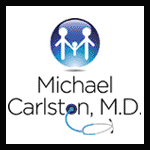Many medications are available only by prescription (unless you own a computer or travel to another country). That is because of the risks that accompany their use. When drugs become available we tend to believe that availability is some sort of certification that they are safe, and weak compared to prescription meds. Not true.
Recent news that daily use of aspirin lowers the risk of a number of cancers (especially esophagus, colon, rectum and lung) is another example of apparently wonderful information that is not, if you know enough. Seems great, doesn’t it? Take a safe drug and prevent some very nasty diseases. Shouldn’t I be taking it anyway, because it prevents heart attacks and strokes?
Here comes the buzz kill. Other studies, larger and more carefully designed, have not found this effect. Also, studies have found that taking aspirin does not prevent a first heart attack or stroke, as we had thought it would. It might be a good idea for that purpose in some middle-aged individuals, and probably is for those who have already had a heart attack or stroke. Finally, recent data shows that daily aspirin doubles the risk of macular degeneration, already one of the most common causes of age-related blindness.
Aspirin used to be routinely given to infants with fever. Then we learned that this could lead to (potentially fatal) Reyes Syndrome. I have never liked using it in this circumstance, because fever is generated by the body in its effort to make itself an unpleasant place for bacteria and viruses to live. Squashing the fever squashes the immune response and, as research shows, prolongs illness.
Ibuprofen, (aka ADVIL, MOTRIN, MUPRIN, RUFEN) seems like a good choice to so many. Inflammation is “bad”, so anti-inflammatory is then good.
Ibuprofen is the leading cause of impaired kidney function in the US. Years ago a kidney specialist told me she would not see a new patient for kidney trouble until the patient had been off ibuprofen entirely for at least a month, because dropping the kidney-imparing ibuprofen fixed 75% of the patients sent to her.
Ibuprofen markedly increases the risk of the most serious problem commonly seen in marathon runners. Their kidneys slow down from the exertion. Taking ibuprofen makes it worse. Their sodium drops and they can die. Not good.
Many athletes take ibuprofen before engaging in their sport. Ironically, ibuprofen increases damage to muscles and soft tissue because “inflammation” is one aspect of the healing process. At the medical meeting of physicians working with endurance athletes before the Marine Corps Marathon last fall, I was delighted to find myself in the company of others who shared my dislike for ibuprofen. We discussed its harms at length, as well as the muscle damaging effects of statin drugs. I loved it.
Is Tylenol, the “safer choice”. Not really. Starting from the very beginning of my medical training I spent a great deal of time working as an Emergency Room Physician. One of my first ER shifts I took care of a teenaged girl who was upset and, crying out for help, took an overdose of Tylenol, believing it was safer than aspirin. By the time she arrived in the ER, she had changed her mind and was feeling fine. She did not realize that, although , in the coming days her life was at risk due to the delayed, liver toxicity of acetaminophen/tylenol.
Following the recognition of the link between aspirin and Reye’s Syndrome, everyone switched to Tylenol. Now many think that the rise in childhood asthma, which began at the same time, is not a coincidence.
Remember, there is no “free lunch” biologically or otherwise. The best medication is no medication. Taking care of yourself, minding the essential health habits, will do far more to help you live well and happily than any medication. There is a place for drugs but they are only pharmacological band aids.
